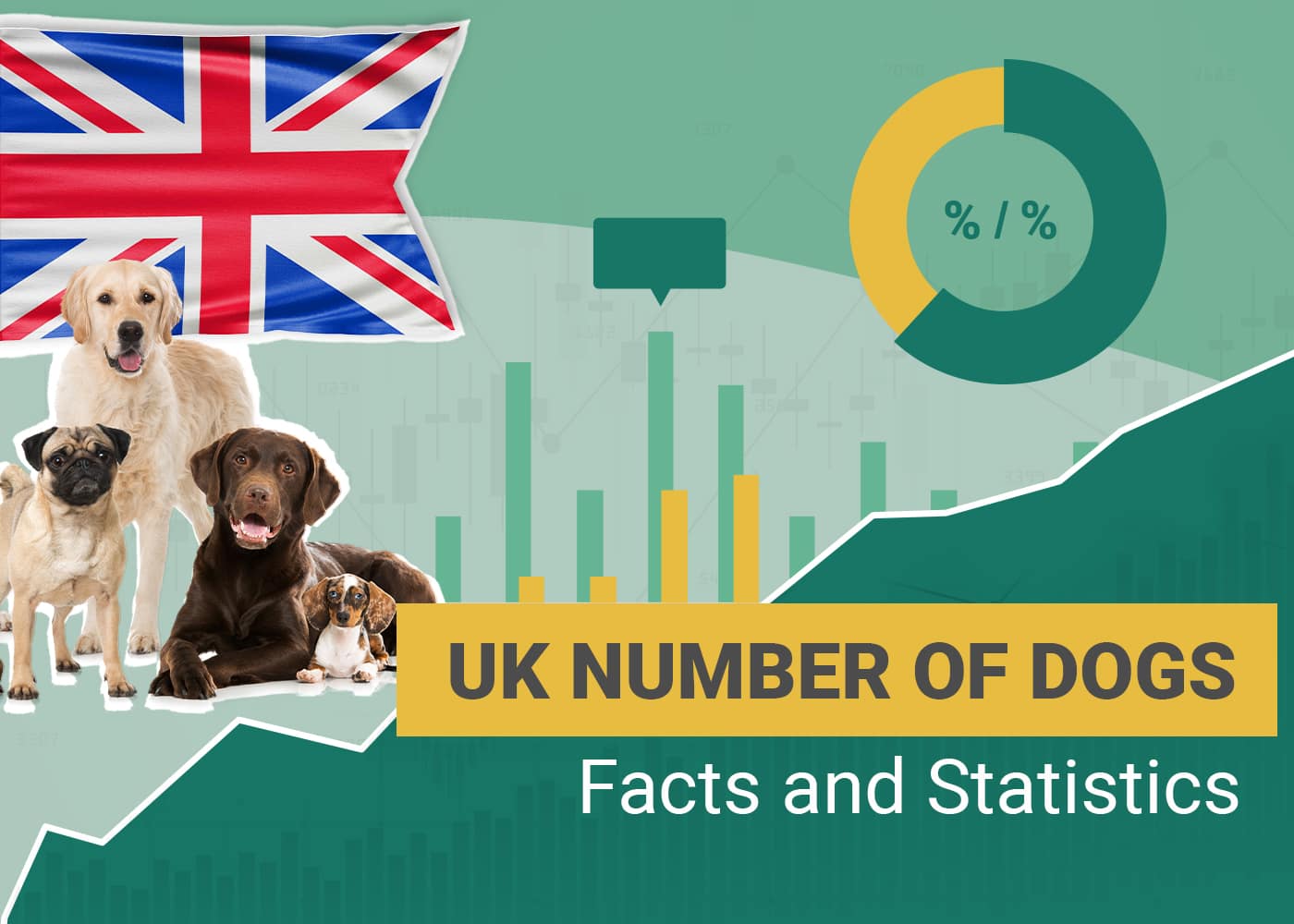Note: This article’s statistics come from third-party sources and do not represent the opinions of this website.
In the United Kingdom, there are around 13 million dogs of every shape and size in happy homes all over the country. When you walk down any British street you will see pups of every variety. Their number has been increasing in recent years, with more people than ever before choosing to own a dog. There are many different reasons why people might choose to own a dog—as a companion or as a form of protection. Whatever the reason, it is clear that dogs make great pets. If you have any questions about dogs in the UK or would like to learn something new, then please enjoy these interesting facts.
Top 23 Statistics on the Number of Dogs in the UK
- As of 2022, 13 million dogs live in UK households.
- The UK has the second-largest dog population in Europe.
- All UK dog owners said their dogs provide companionship or happiness.
- Dogs are the most common reason for RSPCA calls.
- In the UK, dog ownership increased from 23% in 2020 to 34% in 2022.
- Labrador Retrievers are the most popular dog in the UK.
- In close second was the French Bulldog.
- It is estimated that keeping a dog in the UK costs 1,875 GBP per year.
- Boarding costs are the single biggest annual expense for most dogs in the UK.
- Pet insurance is the second largest expense.
- 1.8 million dogs were abandoned in 2022.
- Relinquishments by Generation Z and Millenials made up 71%.
- A dog’s lifetime cost ranges from £4,600 to £30,800.
- The cost of supplies for a new dog is between £370 and £425.
- Dogs cost between £50 and £80 per month.
- Dogs are most popular in Northern Ireland.
- London is the only place in the UK where cats are more popular.
- The Azawakh is the least popular dog breed in the UK.
- The pet food, products, and services market is worth £8 billion.
- UK dog owners spend an average of 594 GBP on dog training services.
- Over 10% of average salaries were spent on pet supplies and services in the UK.
- At £12.32 per hour, dog walking in London was the most expensive in the UK.
- It is estimated that 70% of UK pet owners have had their homes damaged by their dogs.
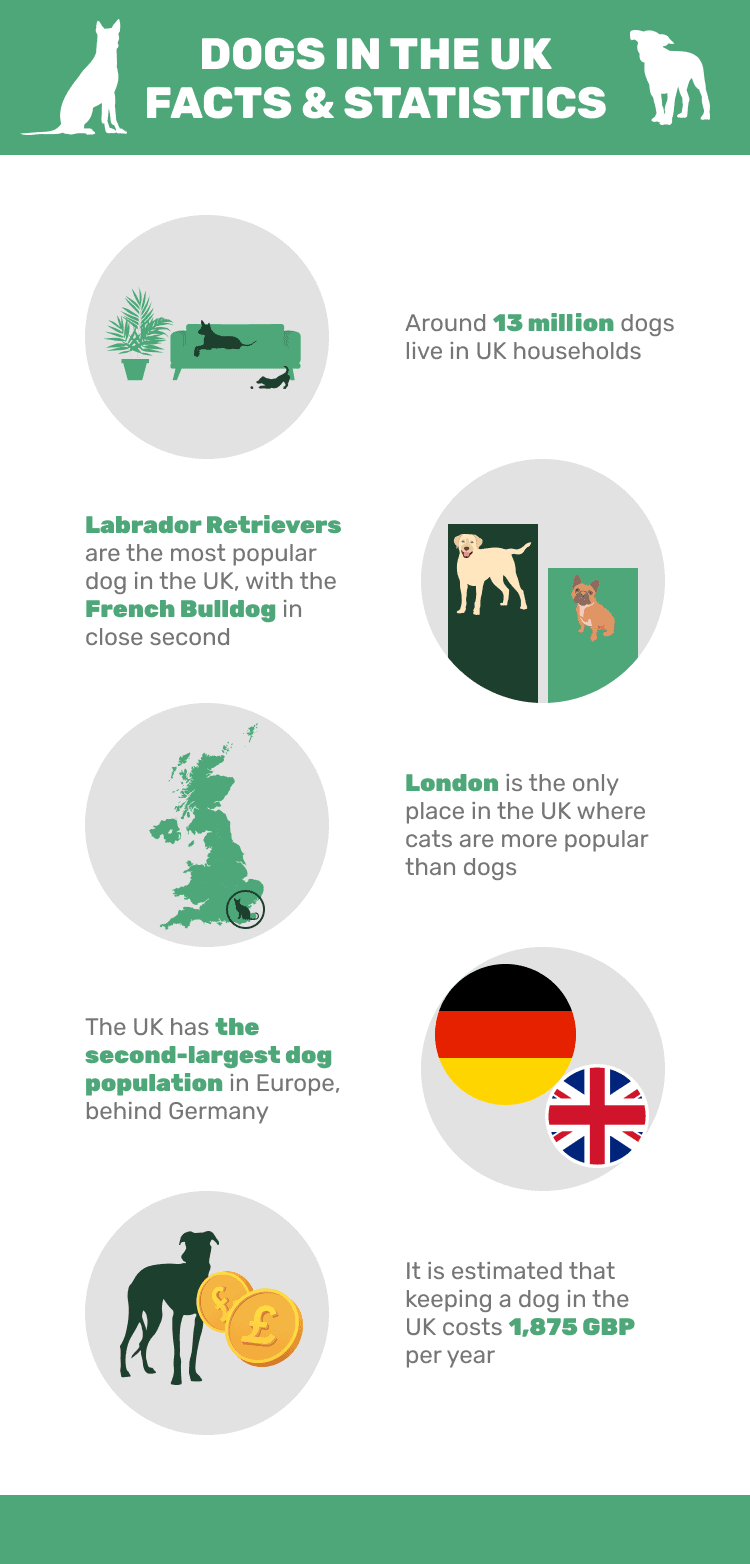
The 23 Dog Population in UK Statistics Are
1. As of 2022, 13 million dogs live in UK households.
(PFMA)
Approximately 33% of UK households own a dog, making them the most popular pet, ahead of cats at 12 million or 27%. There is no exact way to determine how many dogs there are in the UK, but it is clear that their numbers are on the rise. Companions and supporters, dogs play a key role in many families.

2. The UK has the second largest dog population in Europe.
(Braemer Finance)
In 2019, Germany ranked first among European countries in terms of dog population. While the German dog population topped the charts, the UK ranked second. The number of pets in Europe grew from 73 million to over 89 million in 2020. Puzzlingly, in spite of this increase, pet food sales in Europe have not increased significantly.
3. All UK dog owners said their dogs provide companionship or happiness.
(Braemer Finance)
In a 2020 survey, most dog owners cited their reasons for owning a dog as improving their happiness or providing companionship. According to respondents, 51% of respondents say their dogs make them happy; 47% say they provide love and affection, and 35% say they provide companionship. It appears that dogs play an important role in the lives of UK citizens.

4. Dogs are the most common reason for RSPCA calls.
(RSPCA)
In 2020, the RSPCA cruelty line received more than one million calls, or one call every 30 seconds. With more than 50,000 calls to the RSPCA, dogs had the highest number of incidents reported. Due to the fact that dogs are the most popular pet in the United Kingdom, this is not surprising. It can sometimes be challenging for owners to provide the attention and care their dogs require. This leads to dogs being abandoned or mistreated, which is where the RSPCA comes in.
5. In the UK, dog ownership increased from 23% in 2020 to 34% in 2022.
(Statistica)
There is a possibility that the Coronavirus pandemic played a role in this sudden increase since government-imposed quarantines forced people to remain at home. It was an ideal time for families to get their dream dog.
6. Labrador Retrievers are the most popular dog in the UK
(Statistica)
The Labrador Retriever was the most popular breed in the UK in 2020 with around 40,000 registrations. Families choose this breed because they are friendly, intelligent, and good with children. Besides being wonderful pets, labs are versatile working dogs.
7. In close second was the French Bulldog.
(Statistica)
In the UK, French Bulldogs were almost equally popular. In recent years, French Bulldogs have grown in popularity due to their unique appearance and personality. The fashionable and low-maintenance nature of these pets makes them ideal pets for city dwellers.

8. It is estimated that keeping a dog in the UK costs 1,875 GBP per year.
(Statistica)
It is anticipated that this number will increase in the future as food, medical care, and other dog-related expenses continue to rise. Dog ownership can be expensive, but many people find that the companionship and love they receive from their pets are worth it.
9. Boarding costs are the single biggest annual expense for most dogs in the UK.
(Statistica)
Pet dog owners spend approximately 450 GBP per year on boarding for 2 weeks. Even though boarding costs vary based on the location and type of kennel, it is evident that pet owners are willing to spend a significant amount of money to ensure their animals have a comfortable place to stay.
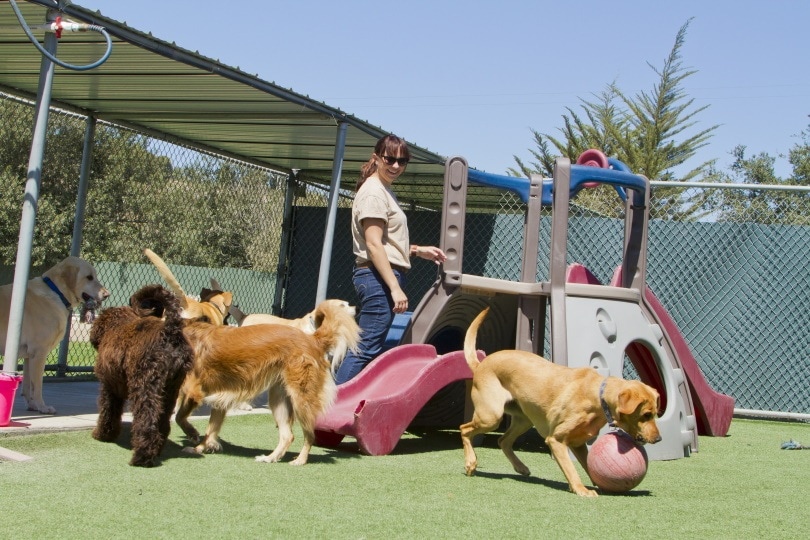
10. Pet insurance is the second largest expense.
(Statistica)
In 2022, pet insurance will cost households with dogs an estimated 330 GBP per year. Although this may seem like a lot of money, veterinary bills can be quite expensive. If you want to make sure your furry friends are cared for in the event that they become ill or injured, pet insurance might be a good investment.
11. 1.8 million dogs were abandoned in 2022.
(PFMA)
In other words, this number represents the number of abandoned and surrendered dogs who were taken in by shelters and rescue organizations. There are a large number of dogs who are in need of permanent homes, which is troubling.
12. Relinquishments by Generation Z and Millenials made up 71%
(PFMA)
71% of all relinquishments (2.1 million households) are from this demographic. This may indicate that younger generations are facing more economic pressure or have a different attitude towards dog ownership than previous generations. Understanding this trend is crucial to reversing it and reducing the number of abandoned dogs.
13. A dog’s lifetime cost ranges from £4,600 to £30,800
(PDSA)
In this estimate, food, medical expenses, toys, and other items necessary to properly care for a dog are taken into account. Depending on the size, breed, health, and location of the pet, dog ownership costs can vary greatly.
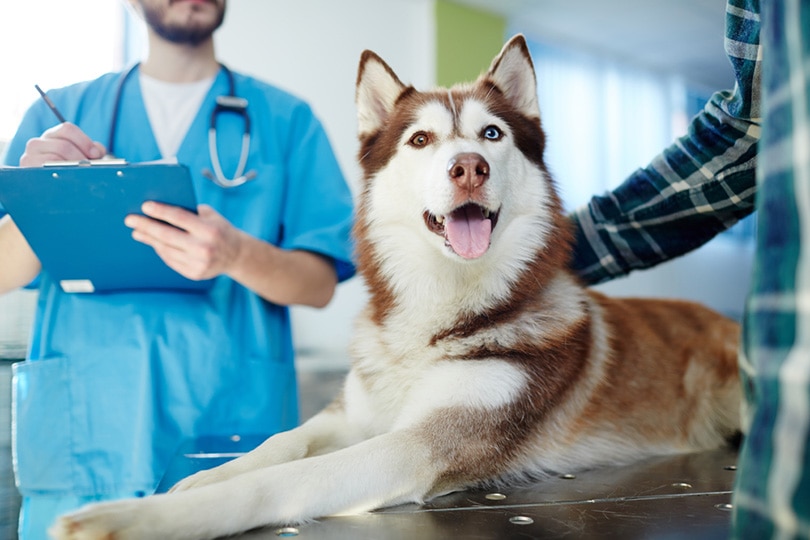
14. The cost of supplies for a new dog is between £370 and £425.
(PDSA)
Supplies for a new dog may include food, water dishes, kennels, bedding, toys, and leashes and collars. A dog’s size is factored into the price range but does not include the cost of buying or rehoming the dog.
15. Dogs cost between £50 and £80 per month
(PDSA)
Costs include yearly health checks and booster vaccinations, regular flea and worm treatments, food, poo bags, and toothpaste. Several factors contribute to this variation, such as the type of dog, the size of the dog, the age of the dog, and whether it is spayed or neutered. Generally, smaller dogs cost less to maintain than larger ones, while puppies cost more to maintain than adults.
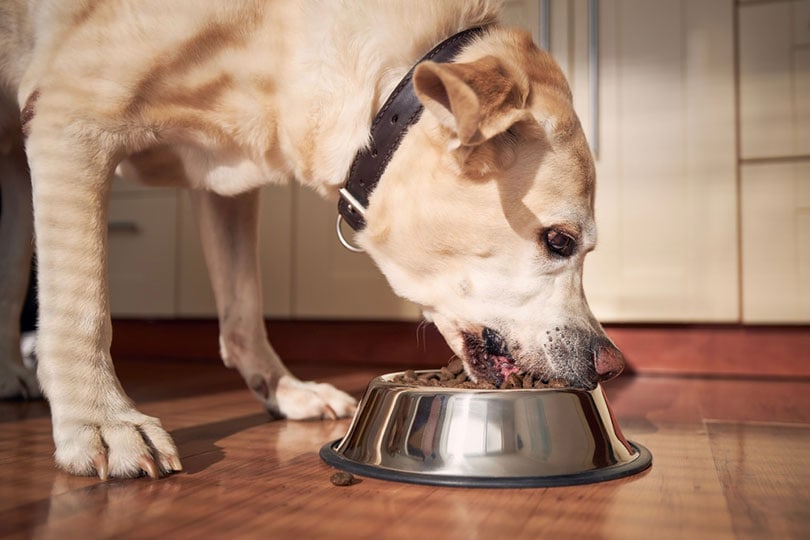
16. Dogs are most popular in Northern Ireland.
(Petplan)
According to Petplan’s 2018 Pet Census, pet ownership in the UK has reached unprecedented levels. Approximately 60,000 pet owners participated in the 2018 Pet Census, which revealed that dogs are Britain’s favorite pets. In Northern Ireland, 78% of respondents were dog owners, compared to 67% nationally.
17. London is the only place in the UK where cats are more popular.
(Petplan)
In the UK, only one region had more cats than dogs, and that was London. In cities, cats are becoming more popular as pets due to their lower cost and lower maintenance needs than dogs. There are many possible explanations for this trend, but one is that cats are more affordable and easier to maintain than dogs. The trend toward smaller homes and apartments may also be related to the fact that cats are more easily accommodated than dogs in smaller homes.
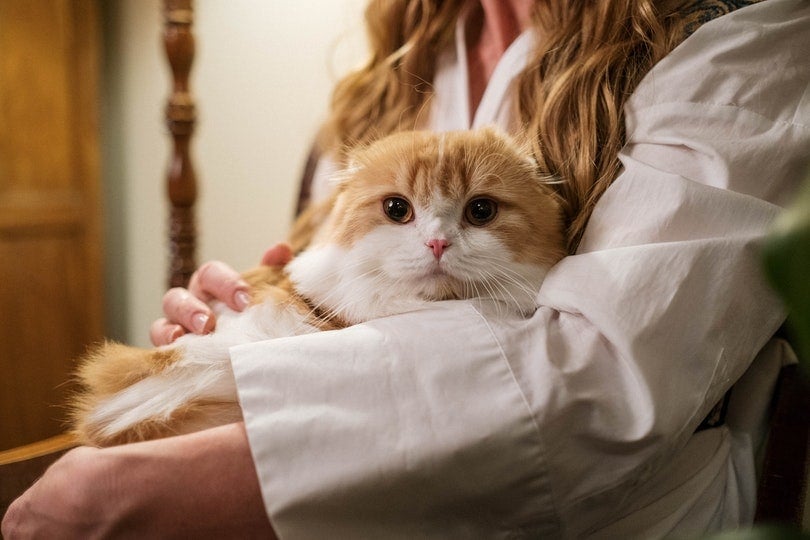
18. The Azawakh is the least popular dog breed in the UK.
(YouGov)
The most popular dog breeds in the UK are typically working or herding dogs. Azawakhs are less popular than others because of their high prices and rarity. In spite of this, the Azawakh has loyal fans who appreciate its beauty and uniqueness. Other breeds that are least popular include the Cirneco dell’Etna, Treeing Walker Coonhounds, the Dogo Argentino, the Sloughi, and Barbets.
19. The pet food, products, and services market is worth £8 billion.
(Statista)
Increasing pet ownership in the UK led to high demand for pet supplies and pet-related products and services, including pet food, dog walking, pet sitting, and grooming. The total spent in the UK reached £8 billion in 2020, compared to £2.9 billion in 2005.
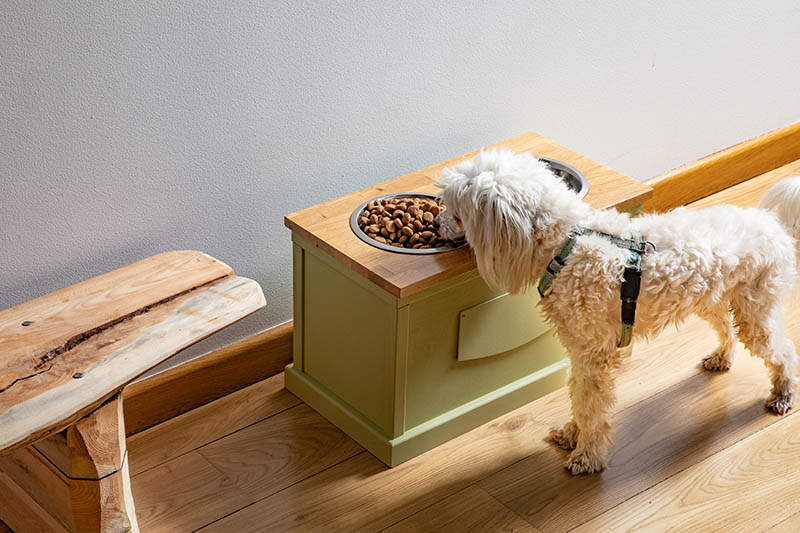
20. UK dog owners spend an average of 594 GBP on dog training services.
(VelcroDog)
The average cost of dog training services in the UK is 594 GBP. In a survey of pet owners, over 53% have never attended a dog training class or professional dog trainer, while over 32% have once attended a dog training class. Only 14.4% of pet owners use dog training classes and professional trainers.
21. Over 10% of average salaries were spent on pet supplies and services
(VelcroDog)
Over £3,000 is spent annually on dog walking services, grooming, training, pet sitting, and supplies by pet owners, which is roughly 10% of the average UK salary. As of 2018, the average salary in the UK was just over £27,000.
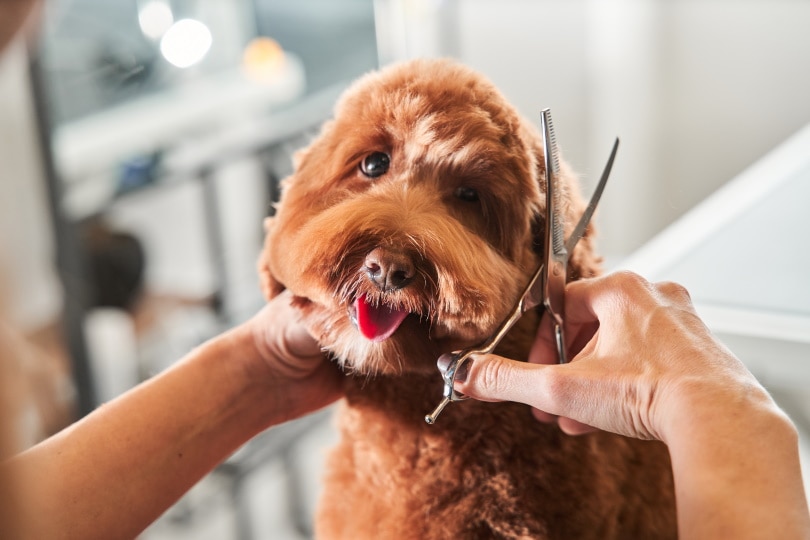
22. At £12.32 per hour, dog walking in London was the most expensive in the UK.
(Statistica)
The cost of dog walking in Wales comes in cheapest at £10.19 per hour, making London significantly higher than other areas of the UK.
23. It is estimated that 70% of UK pet owners have had their homes damaged by their dogs.
Defecation and urination were the most common incidents. The living room was also the most common place for dog destruction, according to almost half of all dog owners. Property damage is significantly associated with owning a dog, based on these results.
Conclusion
There are approximately 13 million dogs living in homes around the UK, which proves that dogs are a popular pet in the UK. As a result of the pandemic, more UK households adopted pets, especially dogs, making the UK the second-highest dog-owning nation in Europe. Besides providing companionship, dogs can reduce stress levels and improve the mental health of their owners. With the right preparation, owning a dog can be a rewarding experience for both the owner and the dog.
Featured Image Credit: Aneta Jungerova, Shutterstock
Contents
- Top 23 Statistics on the Number of Dogs in the UK
- The 23 Dog Population in UK Statistics Are
- 1. As of 2022, 13 million dogs live in UK households.
- 2. The UK has the second largest dog population in Europe.
- 3. All UK dog owners said their dogs provide companionship or happiness.
- 4. Dogs are the most common reason for RSPCA calls.
- 5. In the UK, dog ownership increased from 23% in 2020 to 34% in 2022.
- 6. Labrador Retrievers are the most popular dog in the UK
- 7. In close second was the French Bulldog.
- 8. It is estimated that keeping a dog in the UK costs 1,875 GBP per year.
- 9. Boarding costs are the single biggest annual expense for most dogs in the UK.
- 10. Pet insurance is the second largest expense.
- 11. 1.8 million dogs were abandoned in 2022.
- 12. Relinquishments by Generation Z and Millenials made up 71%
- 13. A dog’s lifetime cost ranges from £4,600 to £30,800
- 14. The cost of supplies for a new dog is between £370 and £425.
- 15. Dogs cost between £50 and £80 per month
- 16. Dogs are most popular in Northern Ireland.
- 17. London is the only place in the UK where cats are more popular.
- 18. The Azawakh is the least popular dog breed in the UK.
- 19. The pet food, products, and services market is worth £8 billion.
- 20. UK dog owners spend an average of 594 GBP on dog training services.
- 21. Over 10% of average salaries were spent on pet supplies and services
- 22. At £12.32 per hour, dog walking in London was the most expensive in the UK.
- 23. It is estimated that 70% of UK pet owners have had their homes damaged by their dogs.
- Conclusion

